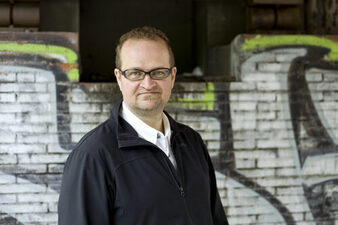Theatre stages have for thousands of years been the home for stories of humans (and other creatures) and their worlds. Theatre and the Performing Arts can permeate the present, the past and the future alike, can build bridges through times, can zoom out or go into close-ups: onto hopes and dreams, enhancing wonders and abysses alike, looking through the surfaces of societies.
Theatre, as an ever-contemporary artform, has at all times kept a curious and, at the same time, a critical eye on the inventions of new technologies - wondering whether these inventions could be interesting for being incorporated on its stages. Very often, the answer was "yes" (just think of electricity and cameras).
Theatre has always been created by storytellers with different expert knowledge. The Master "Theatre and Digitality" is therefore aimed at students with either artistic or technical background (or both) - students who are interested in exploring theatrical narratives in context with technologies.
The Master "Theatre and Digitality" is an interdisciplinary, 3 semester, English-language study at the Faculty of Design of Fachhochschule Dortmund - University of Applied Sciences and Arts. The planned start will be the spring semester of 2025. Graduates will be awarded the Master of Arts.
The study is implemented in cooperation of Fachhochschule Dortmund's Faculty of Design, of the worldwide renowned Academy for Theatre and Digitality (at the Dortmund Theatre), and Fachhochschule Dortmund's Faculty of Computer Science, in association with Fachhochschule Dortmund's storyLab kiU.
Creativity, interdisciplinary expertise and critical thinking: The Master's Program "Theatre and Digitality" includes research and development in the field of digital-technologically supported theatre and performative art. With its curriculum between technology, storytelling, dramaturgy and performance, the study aims to provide students with a broad range of theoretical as well as practical and application-oriented, professionally qualifying skills in the intersection between digital technologies and narratives on analog, virtual and hybrid stages (including topics such as human-machine interfaces or the use of machine learning).

